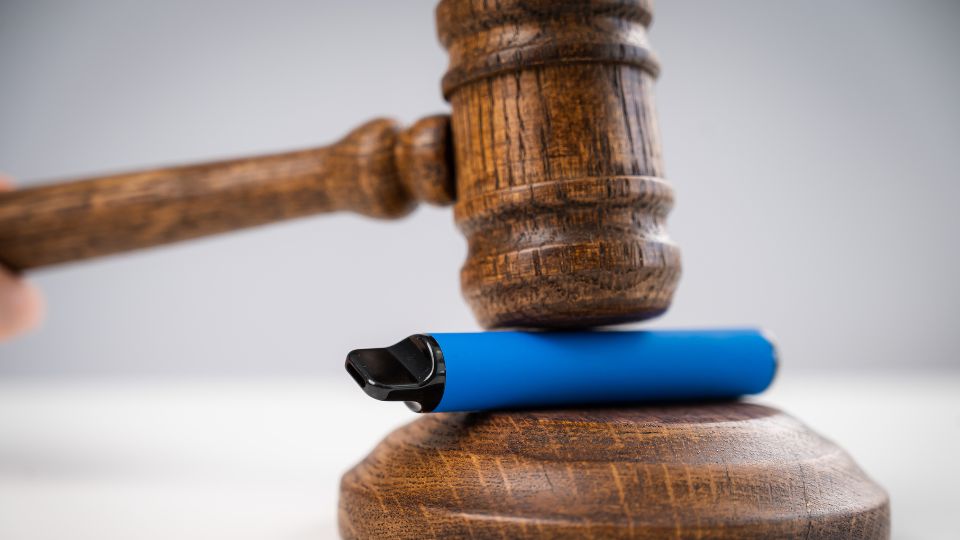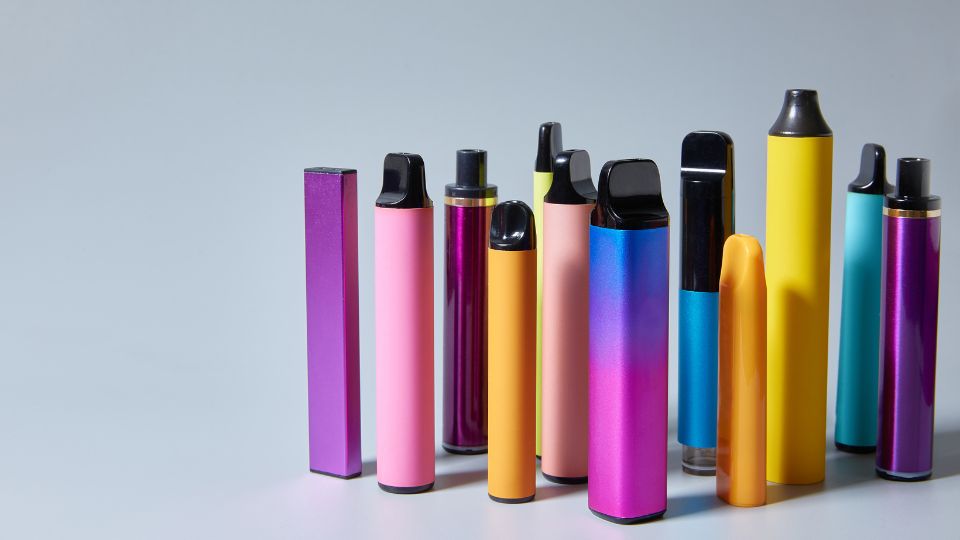
The UK’s disposable vape ban will take effect in 2025. Are you prepared for the ripple effects?
Quick Summary:
- The UK will ban disposable vapes in 2025, aiming to reduce environmental waste and address public health concerns, while refillable vapes remain legal to promote sustainable practices.
- Key challenges include potential black market growth and enforcement difficulties, requiring increased resources for trading standards and international cooperation on imports.
As concerns over environmental waste and public health continue to rise, the UK government has announced a ban on the sale of disposable vapes, set to take effect on 1st June 2025.
This move aims to mitigate the escalating waste crisis associated with single-use vaping products, while also addressing the health implications linked to vaping, particularly amongst younger people.
Table of Contents:
- What is Being Banned?
- Environmental Impact
- Concerns Over Black Market Growth
- Challenges in Enforcement
- International Considerations
- Conclusion
What is Being Banned?
The legislation will prohibit the sale of single-use vapes while allowing refillable vapes to remain legal. It is important that regular vape users are aware of the correct ways to dispose of used vapes.
This distinction is crucial as it encourages more sustainable vaping practices.
Refillable vapes are viewed as a healthier alternative for users and the environment, reducing the number of disposable products that contribute to landfill waste.
Environmental Impact

Recent studies indicate that approximately 5 million disposable vapes are discarded each week in the UK. This highlights the environmental burden caused by these products, including the potential for bin lorry fires and depot fires due to improper disposal of lithium-ion batteries found in vapes.
The government’s action aims to alleviate this environmental strain and promote more responsible consumer behaviour.
Concerns Over Black Market Growth
One of the anticipated consequences of the ban is the potential rise of a black market for vaping products.
With the prohibition on disposable vapes, there are fears that corner shops may illegally sell to minors, undermining public health initiatives aimed at reducing youth access to vaping.
The UK government must be prepared to address these challenges, including the need for adequate policing and trading standards to enforce the new regulations.
Challenges in Enforcement
Although the ban is a step forward in public health and environmental responsibility, it poses significant enforcement challenges.
Trading standards will require additional resources to monitor compliance and address illegal sales.
The specifics of how these regulations will be enforced remain unclear, but the government has acknowledged the need for a robust framework to support these changes.
International Considerations

The UK’s decision to ban disposable vapes is part of a broader conversation on vaping regulation across Europe and globally.
The government has noted that it cannot ban the import of vapes outright without a European-wide or worldwide agreement.
This highlights the complexity of regulating vaping products in a global marketplace and the necessity for international cooperation to manage this issue effectively.
Conclusion
The upcoming ban on disposable vapes represents a critical moment in the UK’s approach to vaping regulation.
As we move toward 2025, it will be essential to monitor the effects of this legislation on consumer behaviour, public health, and the environment.
Stakeholders across the vaping industry, regulatory bodies, and consumers must work together to ensure a smooth transition and address any challenges that may arise.








